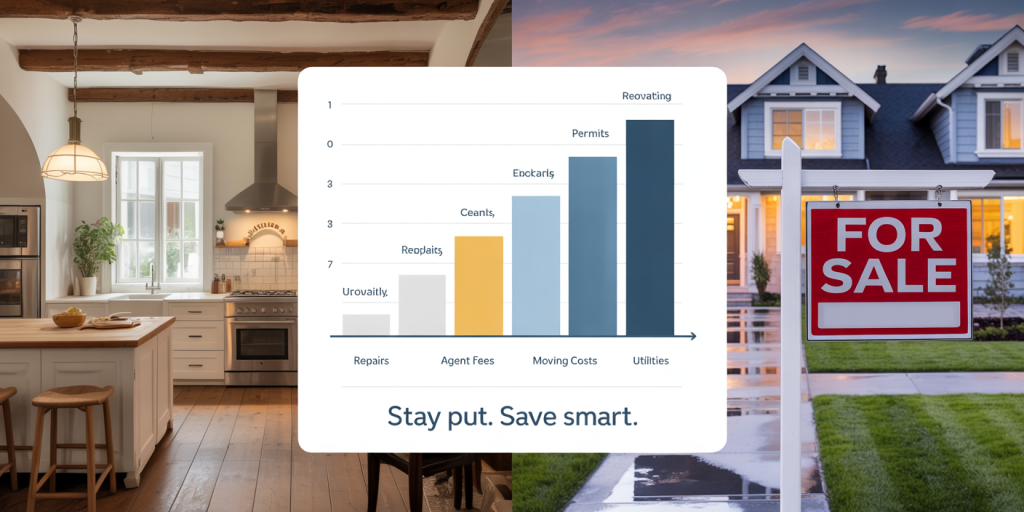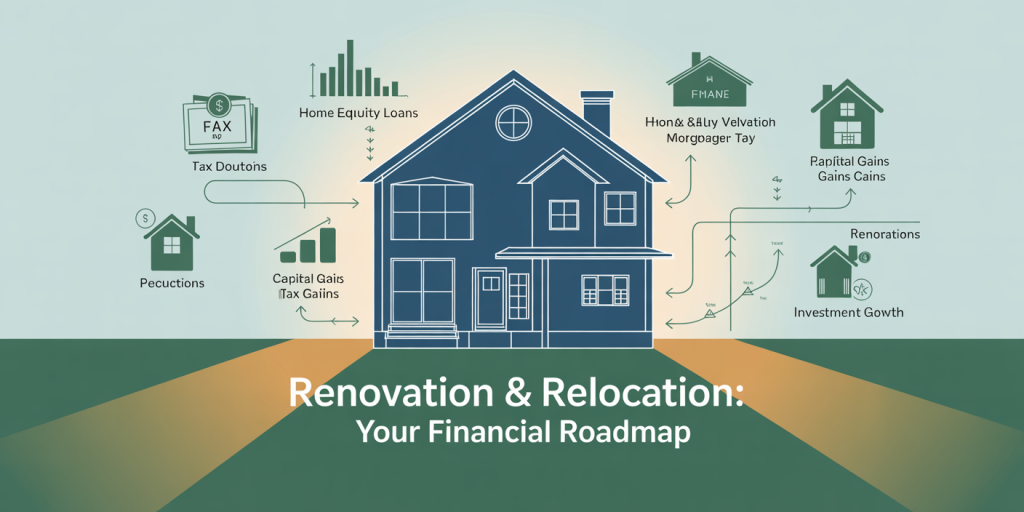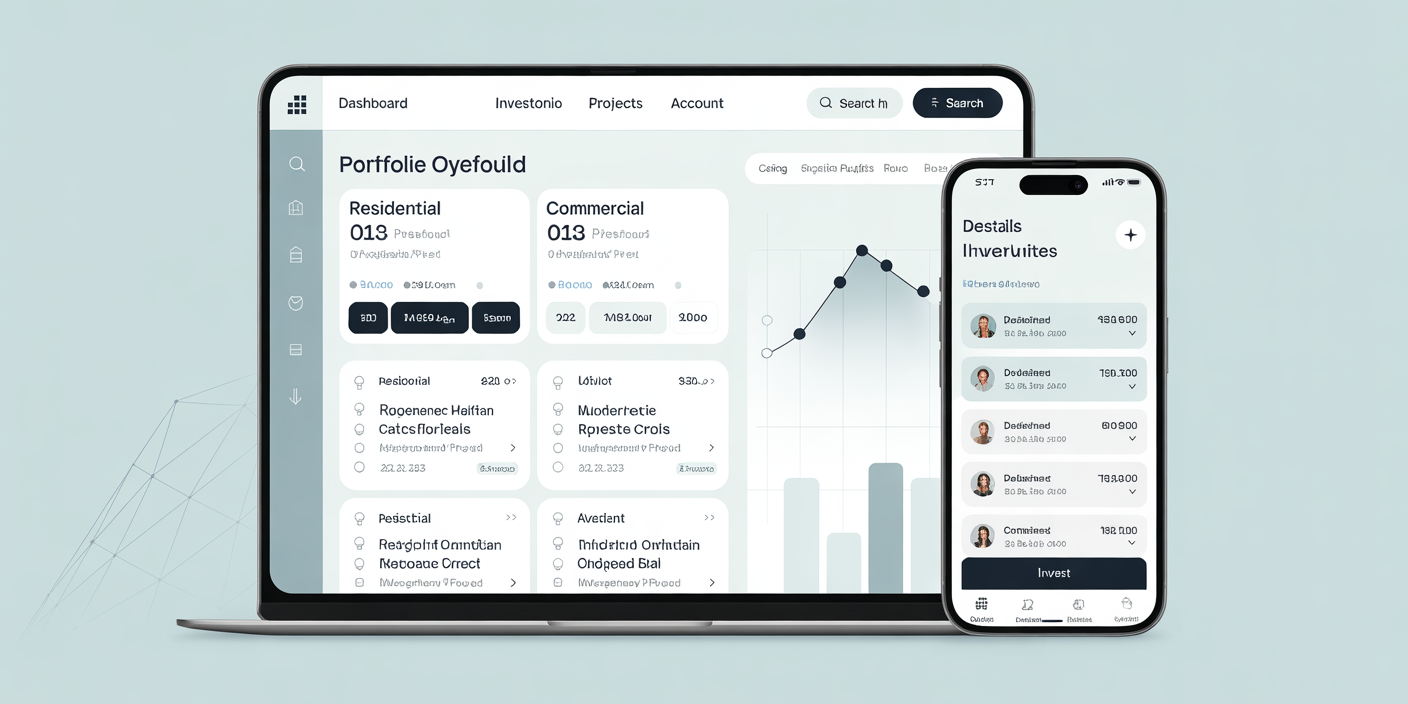Is It Better to Renovate or Relocate? A Financial Breakdown
Anúncios
Deciding whether to renovate the home you currently live in or relocate to a new property is one of the most significant financial choices homeowners face. This decision involves evaluating costs, market trends, lifestyle needs, and long-term financial impacts. It isn’t merely about preferences regarding style or convenience but about making a responsible investment that aligns with your budget, goals, and future expectations. In this article, we present an in-depth financial analysis to help you navigate this complex decision.
The True Costs of Renovation
Renovation projects may appear to be a straightforward solution for improving your living space without uprooting your life. At first glance, a facelift to your existing home seems cheaper than purchasing a new one. However, when you factor in all expenses—materials, labor, permits, and unforeseen repairs—the costs can escalate quickly. According to HomeAdvisor, the average national cost of a home renovation in the United States was approximately $46,000 in 2023, but this varies widely depending on the scope and location.
Anúncios
A real-life example is the renovation of a mid-century bungalow in Portland, Oregon, where homeowners initially budgeted $60,000 for upgrades including kitchen remodeling and bathroom improvements. The project ultimately exceeded $100,000 due to structural issues discovered mid-renovation, such as outdated wiring and water damage. This highlights that hidden costs can transform a planned renovation into a significant financial undertaking. Furthermore, prolonged construction can disrupt daily life and increase temporary living expenses.
Analyzing the Expense of Relocating
Anúncios
Relocating offers the opportunity to select a new home that fits your current and projected lifestyle needs more precisely, but it comes at its own set of costs. In addition to the price of the new home, expenses include real estate agent fees (typically 5-6% of the home price), closing costs (2-5%), moving expenses, and sometimes overlap between mortgage payments if your previous home doesn’t sell immediately.
For instance, a family in Austin, Texas sold their four-bedroom home for $450,000 and bought a larger, newer property in a suburb for $600,000. Closing and agent fees for both transactions totaled approximately $45,000, and moving costs added another $4,000. Although this meant a higher upfront cost, the new home’s lower maintenance needs and modern energy-efficient features promised monthly savings on utilities and repairs, helping to balance the overall financial impact in the long term.
Additionally, in high-growth real estate markets, relocating might yield better return on investment if the new home increases in value. However, in slower markets, the sale of an existing home might limit purchasing power, forcing compromises or higher borrowing costs.
Renovation Versus Relocation: Cost Comparison Table
| Expense Category | Renovation Estimate (USD) | Relocation Estimate (USD) |
|---|---|---|
| Major Repairs (roof, wiring) | $20,000 – $40,000 | N/A |
| Kitchen/Bath Remodel | $15,000 – $40,000 | Included in home purchase price |
| Permit and Fees | $2,000 – $5,000 | $5,000 – $15,000 (closing) |
| Real Estate Agent Fees | N/A | $25,000 – $35,000 |
| Moving Costs | N/A | $2,000 – $5,000 |
| Temporary Lodging | $0 – $10,000 | $0 – $10,000 |
| Increased Utility/Maintenance (Annual) | $500 – $1,500 | $0 – $500 |
This table presents ballpark figures to illustrate that renovation costs are highly variable, largely dependent on home condition, while relocation centers on fixed transactional costs and new buying prices.
Considering Home Equity and Market Conditions
Home equity is a crucial factor that can change the financial dynamics of this decision. If you have built up significant equity in your existing property, using some of it to finance a renovation might be more financially advantageous than selling low in a slow market. Conversely, if house prices in your area are soaring, selling might let you capitalize on high valuations to afford a better home elsewhere.
Data from the National Association of Realtors (NAR) showed that homes in metropolitan areas like Seattle appreciated by an average of 12% per year between 2021 and 2023. Homeowners holding property there had a stronger incentive to relocate and upgrade, leveraging escalating prices. On the other hand, in cities with stagnant or declining property values, investing in renovation can be a safer bet.
Lifestyle and Opportunity Costs
Beyond monetary expenses, lifestyle and opportunity costs weigh heavily on the decision to renovate or relocate. Renovations can be disruptive; construction noise, dust, and reduced accessibility may affect productivity and family routines. Extended renovation timelines can also delay home use, leading to potential costs for temporary housing or loss of enjoyment.

Conversely, relocating demands adjustments to new neighborhoods, schools, and potentially longer commutes. While these changes might not have an immediate financial label, they impact quality of life and work-life balance, which in turn can affect earning potential or family well-being.
Take the case of a couple in Chicago who chose relocation primarily due to their need for better school districts and a shorter commute. Although financially more demanding upfront, their move improved overall family satisfaction and allowed one spouse to reduce commuting time, creating an indirect financial benefit estimated at $10,000 annually.
Financing Options and Tax Implications
When deciding between renovation and relocation, financing options significantly affect affordability and long-term financial health. Renovations can often be financed through home equity loans or lines of credit, potentially benefitting from lower interest rates and tax-deductible interest under certain conditions. For example, a 2023 IRS publication allows deductions on interest for loans up to $750,000 borrowed for home improvements.

Relocation typically involves taking on a new mortgage, which can come with higher down payments, mortgage insurance for lower equity buyers, and possibly higher interest rates in volatile credit markets. Additionally, selling your home might have capital gains tax implications if the profit exceeds IRS exemptions. The exemption allows up to $250,000 gain per individual or $500,000 per married couple filing jointly, assuming ownership and use requirements are met.
Understanding these financial nuances through consultation with tax professionals or mortgage advisors can tip the scales toward renovation or buying new, depending on your unique fiscal situation.
Future Perspectives: Trends Affecting Renovation and Relocation Decisions
Looking ahead, several trends promise to influence this perennial debate. The increasing cost of raw materials and labor shortages point to rising renovation costs. According to Remodeling Magazine’s 2023 Cost vs. Value Report, average renovation expense increases were 7% year-over-year, suggesting that home improvements will require more significant investments.
On the other hand, technological advances such as virtual home tours, online mortgage approvals, and remote work flexibility are making relocating less burdensome and more attractive. The rise of “15-minute cities” and urban decentralization may also offer better quality of life in more affordable outskirts, enticing homeowners to relocate rather than renovate.
Sustainability is another pivotal factor shaping choices. Renovating often allows for green retrofitting—installing solar panels, improving insulation, and utilizing energy-efficient fixtures—which can lower long-term operating costs and improve property value. Conversely, buying a newly constructed energy-efficient home may require a higher initial investment but offers immediate efficiency benefits.
Ultimately, the decision relies on carefully evaluating immediate costs against long-term gains, market trends, tax considerations, and personal circumstances to find a financially sound and life-enhancing solution.
By dissecting the financial dimensions of renovation and relocation, you can better weigh your options. Understanding the expenses, hidden costs, financing intricacies, and lifestyle impacts equips you to make a decision that not only suits your budget but enhances your future living experience. Whether it’s breathing new life into your current home or embracing a fresh start, a strategic approach grounded in real data and realistic expectations is key.




Post Comment